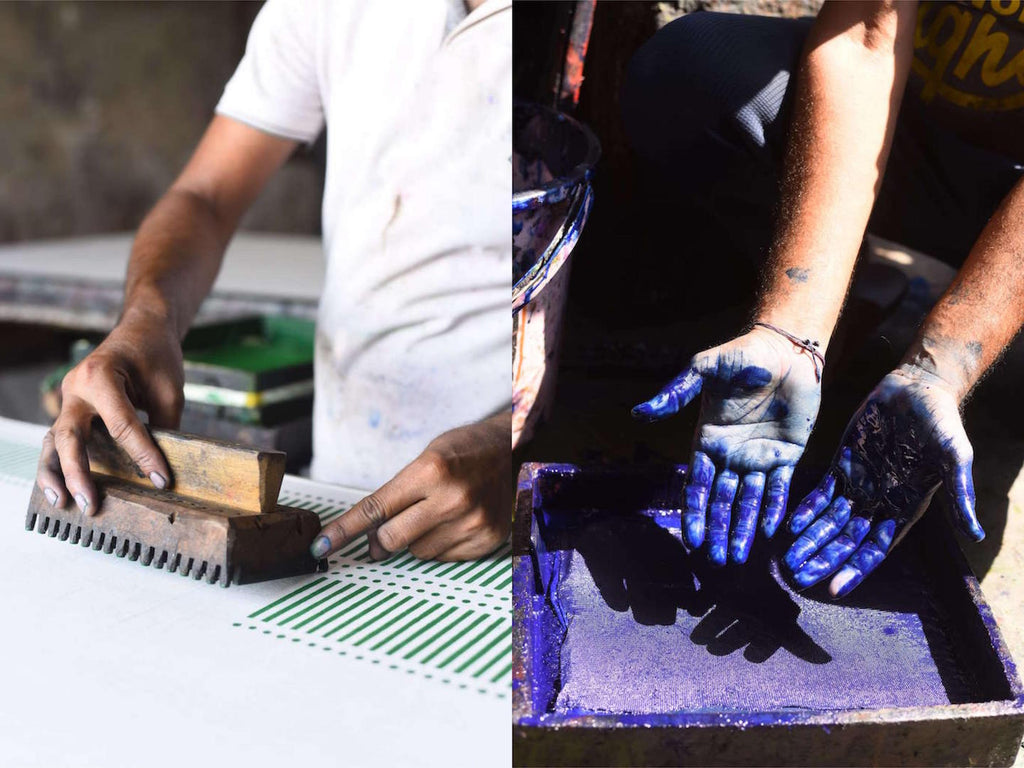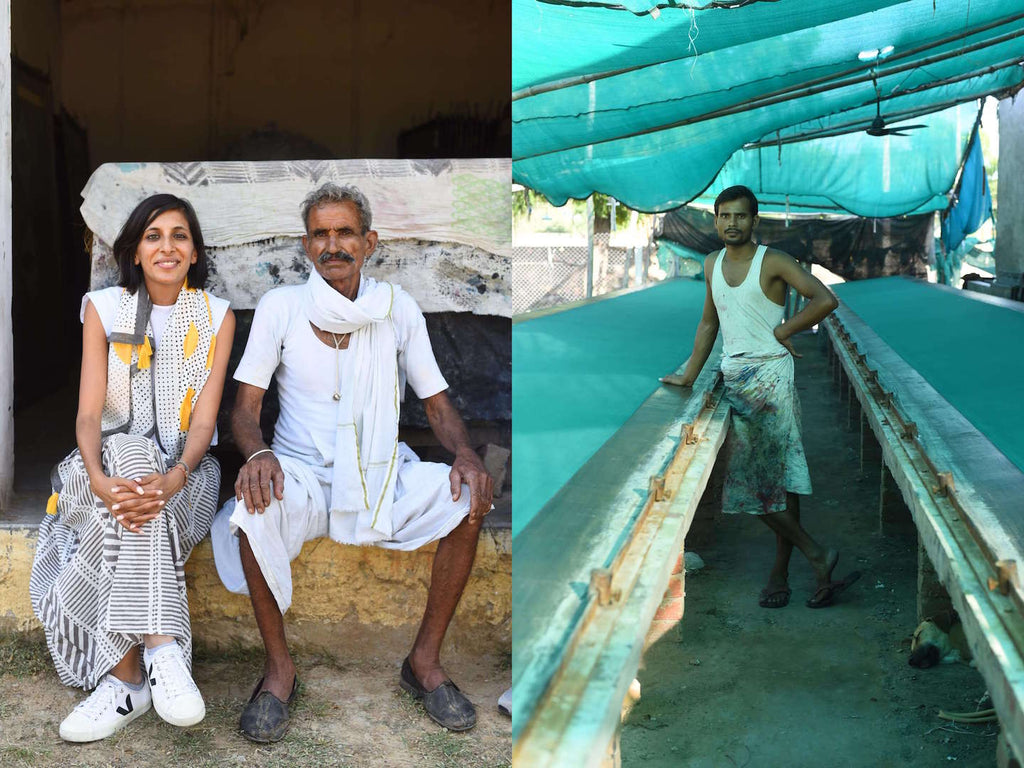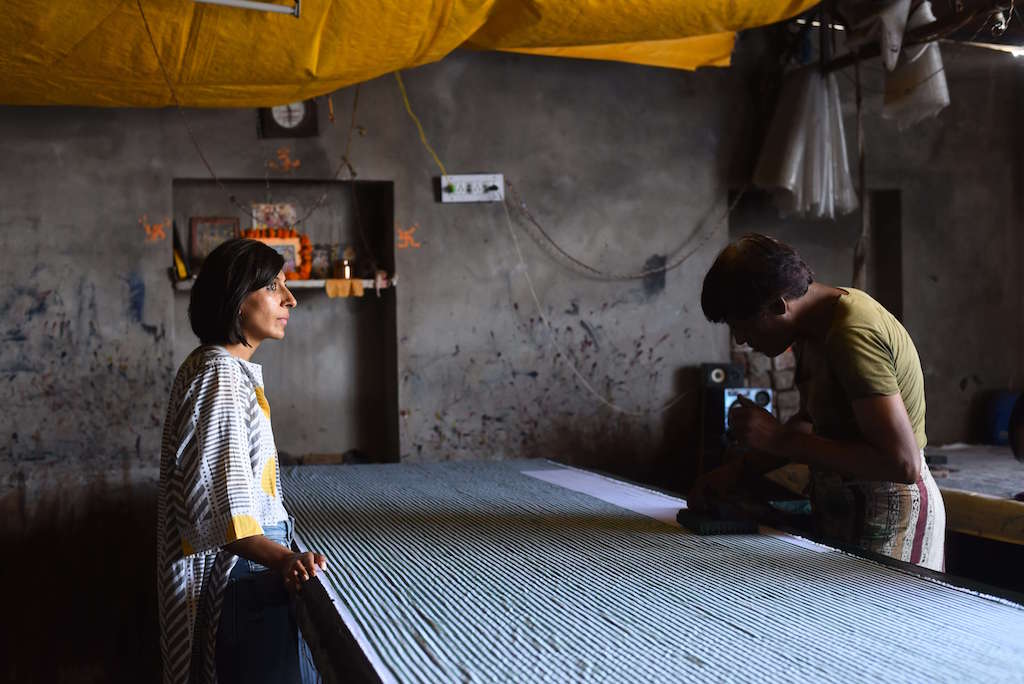
QUALITY & CRAFT: WHY SLOW FASHION MATTERS

Hello tribe,
If you’re visiting the blog, shopping our collections or following us on social media…chances are you probably already know what slow fashion is! But I thought I’d share my thoughts on the movement here today for those who are still wavering between buying the (cheaper) fast fashion item over an ethically, well-made item. It’s a sore point to know that the majority of shoppers out there are choosing to get more bang for their buck over thoughtful, sustainably and ethically made apparel.
Slow Fashion is beyond just a one-time purchase. It’s a movement that, very much like Slow Food, focuses on addressing key topics in the industry such as ethics and environmental responsibility. The mindset aims to see beyond the present and to dress to stand the test of time.
The evil stepsister, Fast Fashion, is something you’re maybe more familiar with. Hot trends, quick buys, clothes that are churned out on a monthly, weekly basis. It’s cheap and it feels cheap; you might throw it out after one or two wears before getting something else immediately after.
Think of all that clothing going to waste. Isn’t it a shame? Millions of tonnes of clothing are thrown out every year, filling up landfills and oceans. That’s not the only thing polluting our environment; the retail clothing industry itself is notoriously known to be one of the most pollutive in the world. Greenhouse gases, pesticides, fabric dyes, plastics, polyesters, foam––you name it. This might not seem like a lot in a sentence, but imagine it being scaled up to huge, global proportions to meet demands for the season’s latest. Pair this with exploiting developing nations for cheap labour and you get the retail nightmare many of us are still trying to wake up from.

Slow Fashion rejects all that and embraces quality over quantity. What you wear today your children can, too. It celebrates choosing beautifully-made clothing that outlives trends and tribulations. Imagine that––a wardrobe that you can wear all year long with quality pieces that are totally, uniquely you! Challenge yourself to seek out answers: what are my clothes made of? Who made them? Do the makers have good working conditions and pay? How were my clothes made? By knowing all this, you will feel more respect towards each and every article of clothing, from your socks to your hairclip. That is what Slow Fashion is about.
Slow Fashion is something I’m deeply passionate about, and also a topic I am learning more and more of! More importantly, it’s something we at Maisha are really focusing on, which is why I’m pushing for more transparency in how our collections are made, sharing detailed information on where they are made, who made them, what are the processes like, plus showcasing the lovely family behind it on the blog and on Instagram. They deserve so much love, for making the Maisha dream a reality!.

How do I join the Slow Fashion movement?
It’s easier than ever to join this growing community. I’m so, so happy that in recent years, more of my friends and people around me are beginning to adapt small fashion changes to their wardrobe. It doesn’t have to be a huge, overnight change: I have friends who started off buying vintage clothing, rootling through their parents’ wardrobe or supporting local sustainable designers like Maisha. Discover what works for you––it could be as simple as learning to ‘style’ your old clothes in a new way! I can guarantee that it’s not difficult to fully embrace Slow Fashion in the long run.
If you’re in the following countries, I encourage you to take a look at the great work these brands and platforms are doing. I love them for their style, transparency and responsibility to those they work with as well as those who shop with them. Take a look!
Kenya: Ichyulu , Kipato (jewellery), ubuntu life
Singapore: Zerrin
India: Good Earth, Fab India
Hong Kong - Rumi X (Yoga wear), Wathaa (swimwear)
Rest of the world – Veja , Aaks, Reformation
Etc.
Thank you.
Keeping it slow,
Rakhee x

